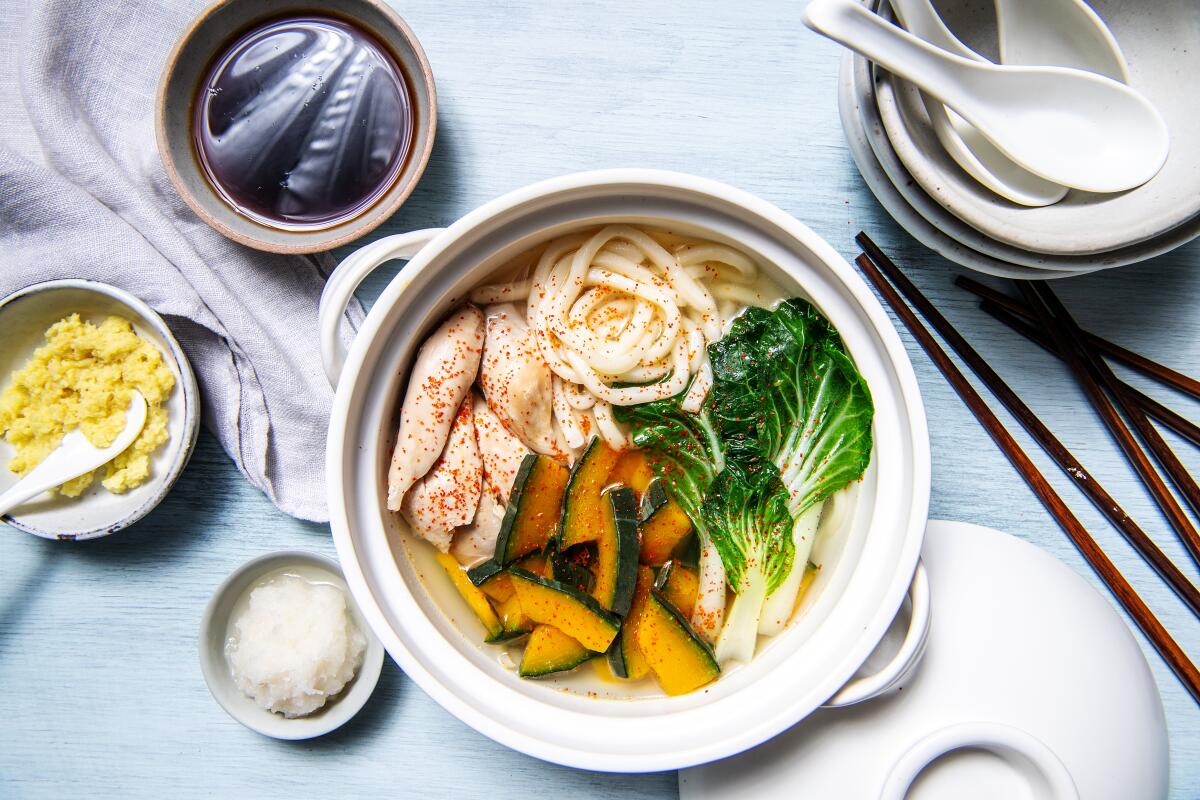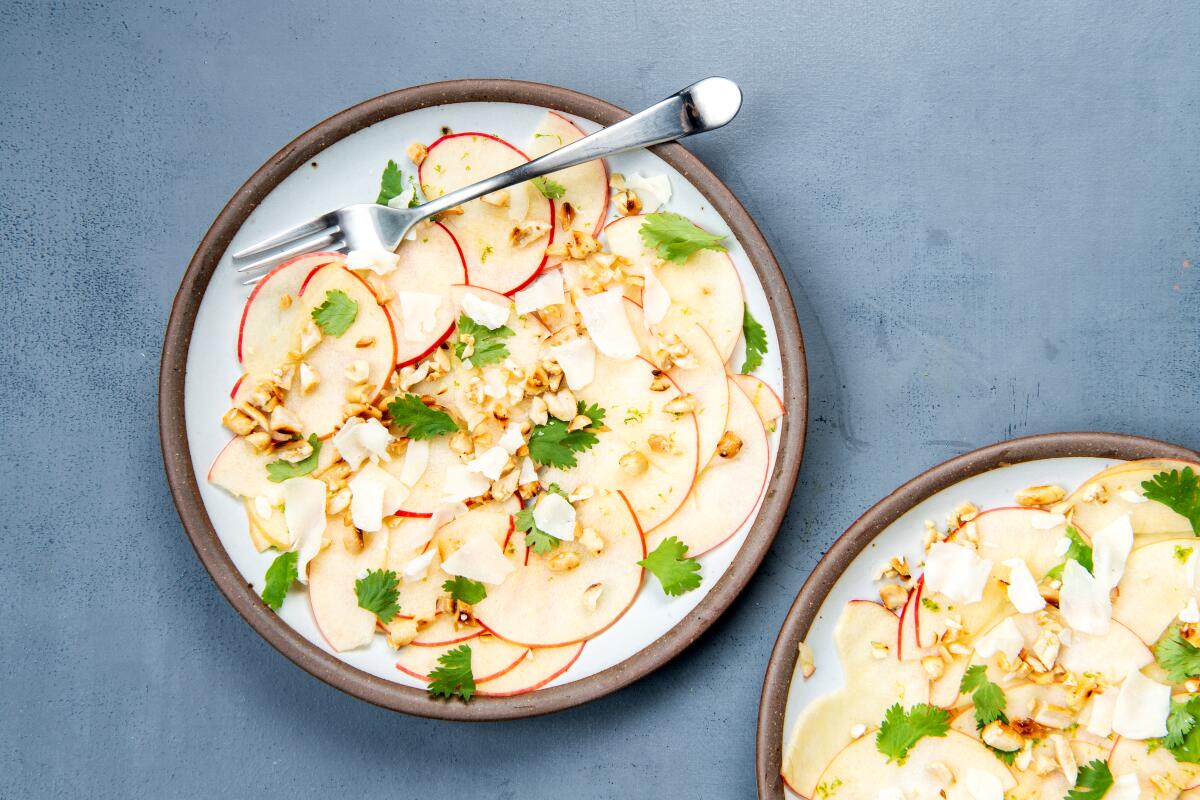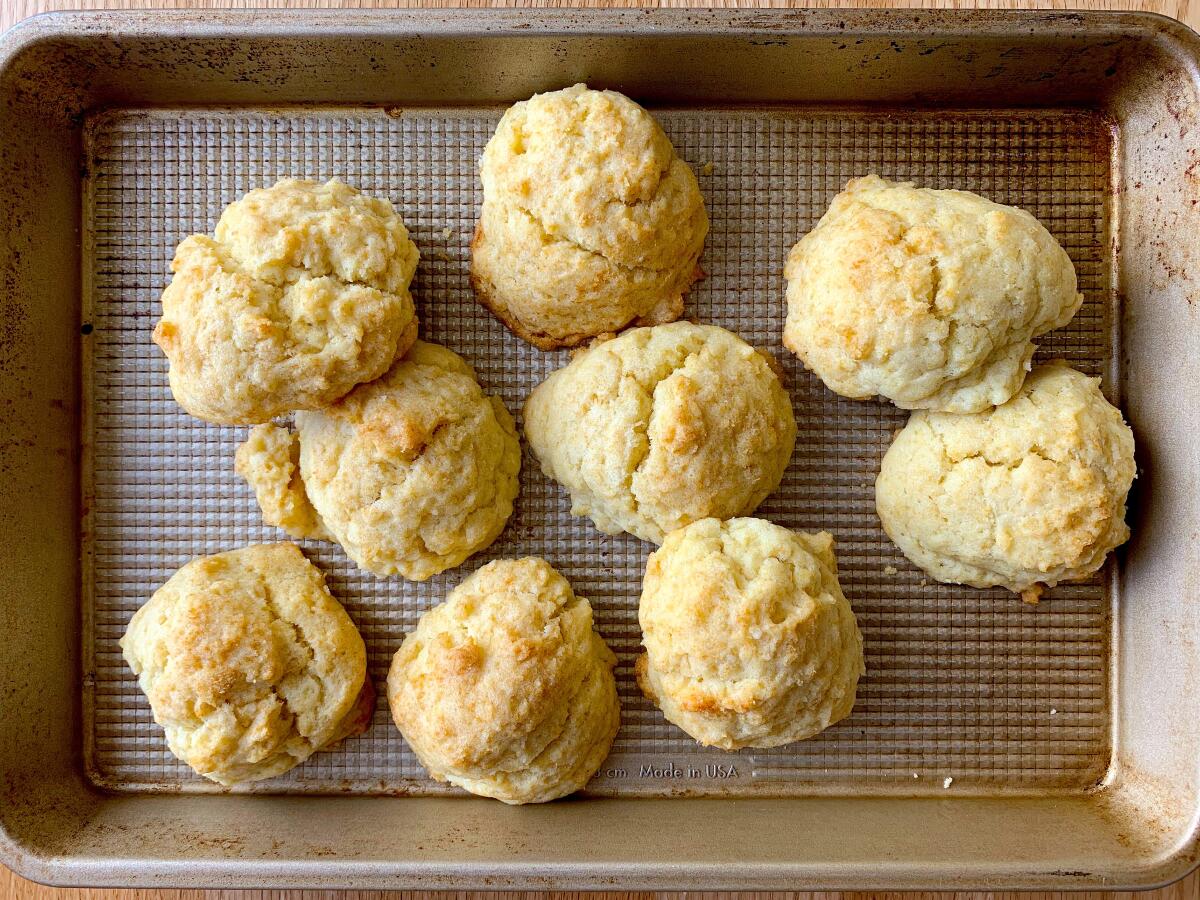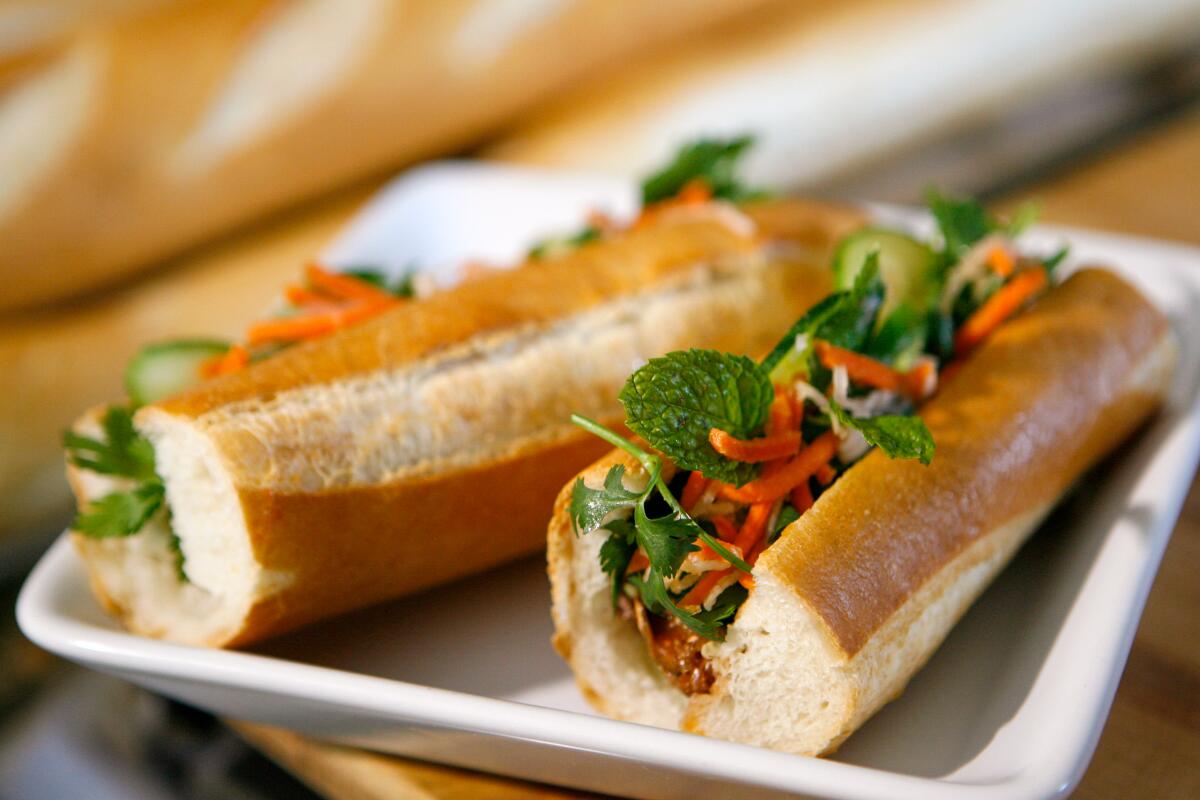
You are reading our Cooking newsletter
Sign up to get a taste of Los Angeles — and the world — in your own home and in your inbox every Friday
You may occasionally receive promotional content from the Los Angeles Times.
On Wednesday, the second day of fires that ravaged L.A., I drove across town to Pasadena to check on my mom (she’s OK). The sepia sky was filled with smoke, ash was falling, and as my car rounded a bend on the 110 Freeway, another phone alert blared to evacuate the area.
I remember having the same pit-of-my-stomach feeling during the dawn-to-dusk curfews of the ’92 riots, the aftermath of the ’94 Northridge earthquake and more recently, of course, the first COVID lockdowns of 2020. A devastatingly epic firestorm is unprecedented.
But Angelenos aren’t strangers to disaster.
And when disaster hits, our fundamental needs come into sharper focus — among them, what our next meal is and where it’s coming from.
Homes are burned down, lives and livelihoods are lost. Dinner feels like some kind of luxury, but it’s also a necessity, no matter what our circumstances.
L.A. Times Food general manager Laurie Ochoa sent me a digital copy of a vintage book titled “The Houston Emergency Preparedness Cookbook,” published by the Houston Department of Health and Human Services.
The introduction notes that disasters are often accompanied by the loss of electricity. The recipes require no cooking or accommodate emergency equipment such as a Sterno stove, chafing dish or fondue pot, for indoors. For outdoors, a grill, propane burner or camping stove.
I didn’t make the double-decker Nutella-Saltine sandwich with canned cherries, sliced almonds and chocolate-hazelnut spread, but might have if I’d had the ingredients. Nor did I make the “EZ” pasta alfredo with canned peas and evaporated milk.
But I did embrace the book’s whatever’s-in-the-pantry-or-fridge/no-nonsense/one-pot approach. Lucky to have a kitchen and power (and anxiety-induced motivation), I managed to cook. I made chicken broth with the carcass of a roast chicken and used whatever vegetables I had — kabocha and scallions and toasted sesame seeds — for soup.
I also baked these “galettes au Roquefort” (a recipe for blue cheese biscuits from Julia Child by way of David Lebovitz) with leftover Bay Blue, and then another version with a hunk of ripe Taleggio, rind and all. Maybe not out of necessity, but for solace and resilience.
Eating out this week? Sign up for Tasting Notes to get our restaurant experts’ insights and off-the-cuff takes on where they’re dining right now.
Kabocha Squash and Chicken Hot Pot
This one-pot soup from former cooking editor Genevieve Ko combines chicken drumsticks with udon noodles and winter squash. You can substitute cooked rice for the udon noodles.
Get the recipe.
Cook time: 45 minutes. Serves 4.

Shaved Apple and Peanut Salad
This salad is a showcase for apples, any good, sweet-tart kind from the farmers market or your local grocery store. Former cooking columnist Ben Mims loves the varieties Melrose and Mutsu (also called Crispin), but Pink Lady and “good ol’ ” Granny Smith would taste great in the preparation. Roasted, sesame-scented peanuts add crunch.
Get the recipe.
Cooking time: 25 minutes. Serves 4 to 6.

Enjoying this newsletter?
Consider becoming a Times subscriber.
Drop Biscuits
Fat & Flour baker-owner Nicole Rucker describes these as “the anti-mile-high biscuit, ugly and even, but they have a tender crumb that elicits the primal joy of biting into something delicious.” Her mother and grandmother made such drop biscuits, with few ingredients, a very quick turnaround time and maximum pleasure. They are easy enough to become a weekly practice.
Get the recipe.
Cook time: 25 minutes. Makes about 15.

Sardine Banh Mi
Making these classic Vietnamese sandwiches is more a matter of assembly than cooking, especially when you go with an easy filling of sardines (a classic banh mi ingredient). A single baguette yields four generous sandwiches.
Get the recipe.
Cook time: 20 minutes. Serves 4.

Have a cooking question?